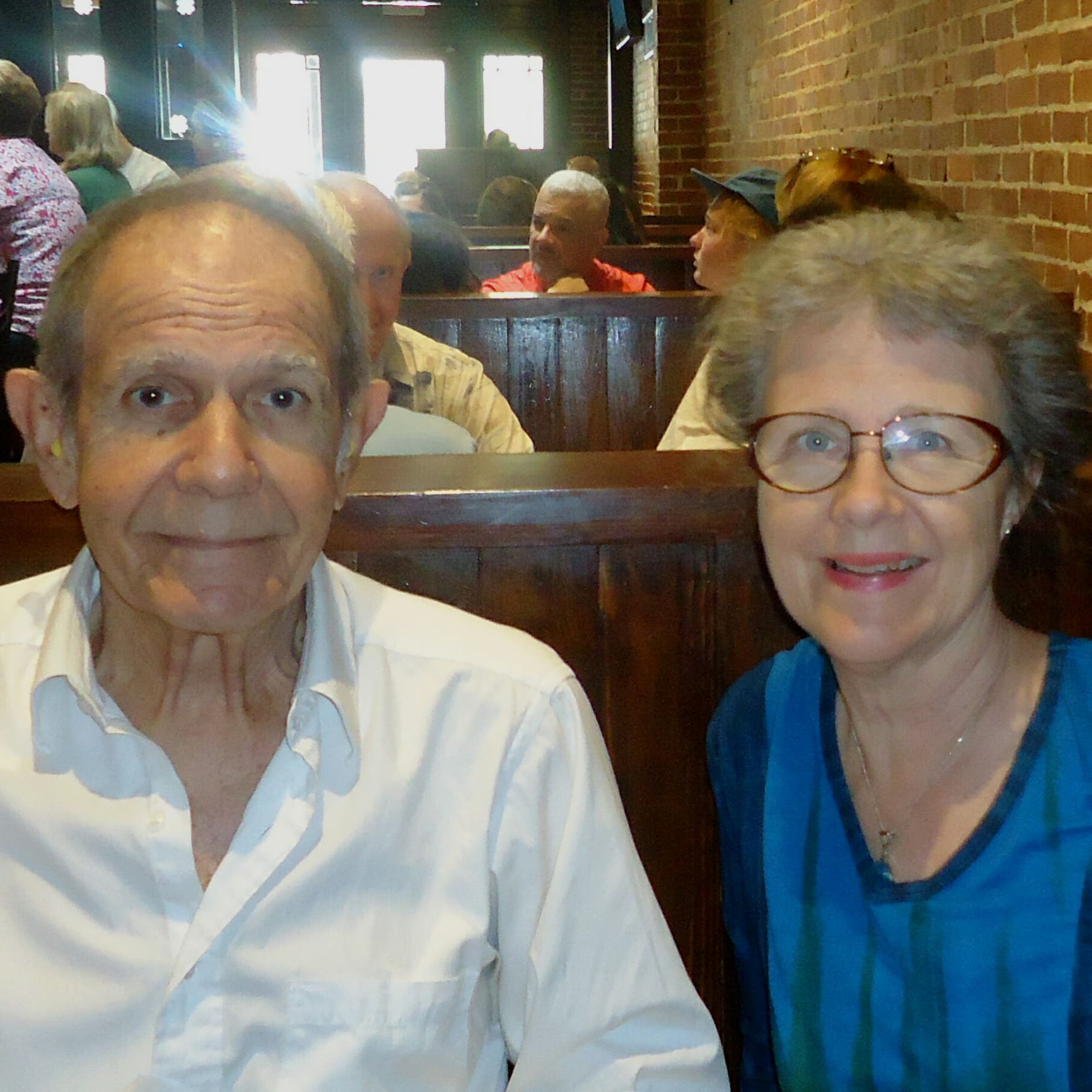
Katherine shared her story in November of 2024.
Daniel is one of those people who is gruff on the outside but actually a kind and highly sensitive person, and that has not gone away with his dementia. For decades, until he could no longer do so, my husband kept a little calendar with the birthdays of everyone he knew and made a practice of calling and wishing each person a happy birthday — that was how much he cared about the people in his life.
Even now, he thanks me every day for taking care of him.
One of the things that drew me to Daniel nearly 30 years ago was how healthy he was. My first husband, Eddie, died following a diagnosis of terminal pancreatic cancer, and when you start dating again after having had a spouse with cancer, you think about these kinds of things. Daniel did everything to keep himself as fit and healthy as possible — he exercised religiously, ate right, took supplements. None of it prevented him from getting dementia.
The first thing I noticed was that Daniel could no longer use his audio equipment. Daniel had been an audio technician for most of his career, including on movies and for Disney, Broadway shows and corporate events. I just assumed he had just gotten rusty since his retirement a few years earlier. Then I noticed he was having more trouble using a computer, something he’d always been great at. Again, I pushed my concerns aside. This was around 2015. Around this same time, Daniel had a couple of TIAs (transient ischemic attacks), which I didn’t realize can be an indicator of dementia. We went to a cardiologist who said Daniel was in great health and recommended we see a neurologist. We didn’t.
In 2017 Daniel and I went to Amsterdam for a month, something we had been doing every few years for a long time. This trip, we’d go out in the mornings, go to museums and walk the city; Daniel would seem to be himself. Then, when we’d come back to the apartment for lunch, Daniel would say, “I just want to sit down and watch TV.”
That was highly unlike Daniel, not wanting to get out and explore the city while we were there. I had to face the fact that something was wrong. Unfortunately, however, it would be another four years before I actually did something about it.
By 2022, Danny’s memory was fading dramatically. He was having trouble exercising and doing other regular activities. An initial test by his primary physician diagnosed Daniel with mild cognitive impairment, but I knew it was more than that. Follow-up tests, including a PET scan, showed Alzheimer’s.
Finally I got serious about making plans for our future.
Early in our marriage, Daniel and I talked about end-of-life care quite a bit. We had both seen what Eddie endured as a result of his cancer, which got us talking about how much treatment we would want if we were in a similar situation. Then I watched my father struggle with dementia for years and felt unable to help him. As Daniel and I aged, we began to see our friends facing decisions about what kind of medical treatments they wanted and what all of it would mean for their families, and we started talking about it more. When Daniel received his diagnosis, he was adamant that he didn’t want to prolong his life a second longer than he had to.
In April 2024, I learned about the new Dementia Values and Priorities Tool from Compassion & Choices. Immediately Daniel and I sat down together to fill out the form. The process was so simple. I’d been overwhelmed by thick books about dementia and dementia caregiving, but this was so much more accessible. Daniel was very clear: “I don’t want any life-prolonging treatment if I can’t speak or make rational decisions. I don’t want food or water. I want a natural death as soon as possible.”
I reminded him that as his healthcare proxy, it will be my responsibility to represent his wishes and fight for them to be honored, so it was very important that he be certain this was what he wanted. He was resolute, and we called over our neighbors to witness his signing.
The dementia tool is a great first step in advance care planning for people dealing with this disease. I’ve since recommended it to a number of people, including those in my caregiver support group and beyond.
Today, Daniel remembers very little about his career and nothing about our marriage. He has almost no short-term memory. He sleeps a great deal, and it’s difficult to get him to eat normal foods. But in general his mood is still good. I know there will come a time when he won’t be able to thank me anymore the way he does now. I know there’s a hard road ahead of us. But I’m thankful we’re facing it equipped with the resources from Compassion & Choices. I’m thankful I know what Daniel’s wishes are and am ready to do all I can to honor them.
Mail contributions directly to:
Compassion & Choices Gift Processing Center
PO Box 485
Etna, NH 03750
Compassion & Choices is a 501 C3 organization. Federal tax number: 84-1328829